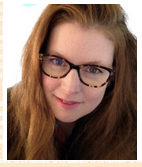The WorldFAIR project has had a number of sessions accepted for International Data Week 2023, an event which incorporates the Research Data Alliance 21st Plenary Meeting, the SciDataCon conference, and some IDW shared plenary sessions.
Here is an initial overview including SciDataCon sessions, IDW plenary sessions, and RDA Interest Group / Working Group / ’Birds of a Feather’ meetings.
If your session is not here, please add it to the relevant day, in this document, or leave a comment on this blogpost with the details.
If you’re attending, double check the programme in advance to confirm the date/time/location, as details may change.
Mon 23 Oct
- Building a semantic interoperability framework: towards FAIR mappings and crosswalks. Session Organisers: Joonas Kesäniemi , Tommi Suominen , Yann Le Franc , Wolmar Nyberg Åkerström. Mozart Hall 4+5. 09:30 – 11:00 UTC / 11:30-13:00 CEST. https://www.scidatacon.org/IDW-2023-Salzburg/sessions/512/
- RDA BoF meeting: Why aren’t we talking about Collections as Data? BoF chair serving as contact person: Beth Knazook (WP13). Mon Oct 23, 2023. https://www.rd-alliance.org/why-arent-we-talking-about-collections-data
- Session Title: Data Frontiers in Social Sciences: Ethics, Integration, and Best Practices. Session Organisers: Maja Dolinar. Room: Doppler Hall. Date: Oct. 23, 2023. https://www.scidatacon.org/IDW-2023-Salzburg/sessions/573/ . Speakers include Steve McEachern (WP06).
- FAIR Beyond Discoverability: Exploring Technology Approaches and Challenges through DDI-CDI Implementation. Session Organisers: Arofan Gregory and Simon Hodson. Karajan-Hall 2+3. Date: Oct. 23. 14:00 – 15:30 UTC / 16:00 – 17:30 CEST. https://www.scidatacon.org/IDW-2023-Salzburg/sessions/553/
Tue 24 Oct
- IDW Plenary Session ‘Inclusivity in Open Science while advancing research assessment and career pathway impact’. Speakers include Ana Ortigoza (WP08). Tue Oct 24, 2023. https://idw2023.events.whova.com/Agenda/3380195
- Session Title: WorldFAIR: the Cross Domain Interoperability Framework (CDIF). Session Organisers: Simon Hodson, Laura Molloy, Arofan Gregory (WP02). Room: Europa Hall. Date: Oct. 24, 2023. https://www.scidatacon.org/IDW-2023-Salzburg/sessions/555/ 12:00 – 13:30 UTC / 14:00 – 15:30 CEST
- Session Title: Open data and open service for disaster risk reduction. Session Organisers: Qunli Han , Fang Lian , Lili Zhang , Jianhui Li. https://www.scidatacon.org/IDW-2023-Salzburg/sessions/509/. Room: Karajan-Hall 1. Date: Oct. 24, 2023. Speakers include Bapon Fakhruddin (WP12).
Wed 25 Oct
- Session Title: Data Cubes as a tool to organise data in data spaces. Session Organisers: Quentin Groom , Kathi Schleidt , Maarten Trekels (WP10). Date: Oct. 25, 2023. https://www.scidatacon.org/IDW-2023-Salzburg/sessions/490/
- Let’s talk about FAIR mappings! Towards common practices for sharing mappings and crosswalks, RDA BoF, Organiser: Yann Le Franc. Mozart Hall 4+5. 09:30 – 11:00 UTC / 11:30 – 13:00 CEST https://www.rd-alliance.org/let%E2%80%99s-talk-about-fair-mappings-towards-common-practices-sharing-mappings-and-crosswalks
- IDW 2023 Plenary Session ‘Data and global challenges: data, science, trust and policy’. Date: Oct. 25, 2023.Room: Europa Hall. Speakers include Pier Luigi Buttigieg (WP11).
- WorldFAIR will be showcased in the CODATA-WDS plenary session on the evening of Wed 25 Oct. Room: Europa Hall.
Thu 26 Oct
- Session Title: Beyond FAIR: Reusing Chemical Data Across-disciplines with CARE, TRUST, and Openness. Session Organisers: Fatima Mustafa , Iseult Lynch , Thomas Exner , Lesley Wyborn , Ian Bruno , Leah McEwen , Anjana Elapavalore , Hiba Mohammed-Taha , Alexander Prent. Thursday, 26 Oct. Room: Karajan-Hall 2+3. https://www.scidatacon.org/IDW-2023-Salzburg/sessions/504/
- RDA BoF meeting: Describing Chemical, Physical and Biological samples digitally: Seeking harmonisation. Thursday, 26 Oct. Room: Mozart Hall 2+3. https://www.rd-alliance.org/describing-chemical-physical-and-biological-samples-digitally-seeking-harmonisation
Happy International Data Week 2023, whether you are attending in person or online!


